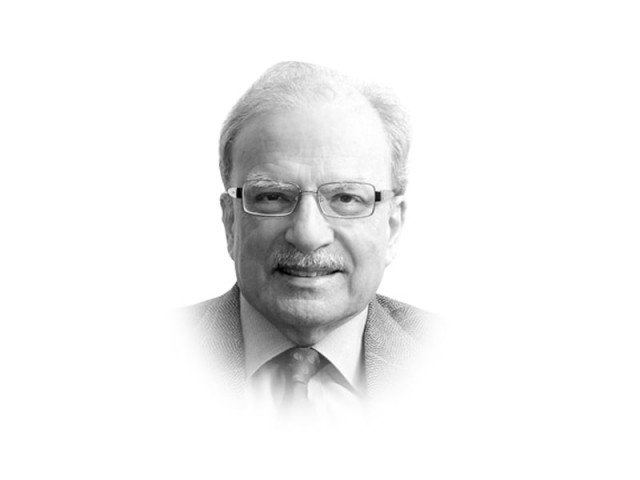In a state of flux
It would not be an exaggeration to say that Pakistan’s political situation is in a state of flux.

There are precedents in Pakistan’s turbulent political history of the use of populism as an easy way to power. It was done by Sheikh Mujibur Rahman in the late 1960s by using the ‘six point programme’ to gain autonomy for East Pakistan. The momentum he built-up led to a brutal civil war and the eventual break-up of Pakistan. It was used by Zulfikar Ali Bhutto to build popular support for him and his new political grouping, the Pakistan People’s Party. Bhutto’s ‘roti, kapra, makan’ was a powerful slogan that mobilised the masses and brought him to power in what was left of Pakistan after the emergence of East Pakistan as the independent state of Bangladesh.
The important lesson to be learnt from these two incidents of the use of populism to gain power is that the results can be destructive unless the slogans used are accompanied by solid programmes. Both Mujibur Rahman and Bhutto came to power without understanding how they would deliver what they had promised. Both created chaos; political in the case of Rahman, economic in the case of Bhutto. Both paid with their lives for the mistakes they made.
There are some important differences between the Rahman-Bhutto eras and the one politicians face today. Thanks to the extraordinary increase in the flow of information and the availability of means to access it, people are much better informed about their relative situations than they were four decades ago. As political scientists such as Samuel Huntington and political-economists such as Albert Hirschman wrote in the late 1960s, perception of relative deprivation is a powerful political motivator. It can lead to extreme political instability, sometimes even to revolution, if institutional means for dealing with it are not found by those who are in positions of power.
The other important difference is that the various means of social-networking can be used and, have been used by those who feel deprived, to get organised to challenge the established order. This was done not only by those who brought the Arab Spring and with it regime change in several countries in the Middle East but it also helped organise the upheaval in London this summer against the policies of the ruling Conservative Party. It is also what has made the on-going Occupy Wall Street movement in the United States a powerful expression of discontent. Technology, therefore, has increased the attention span of the citizenry but reduced their tolerance. If they perceive that their situation with respect to the others is not to their satisfaction, they will react, sometimes even with violence.
Relative deprivation can be with respect to the other, more fortunate people in the same society. It can also be with respect to people in other parts of the world. Pakistan’s politicians have to grasp the important fact that the citizenry is not only deeply concerned about the growing inequality in their own country, as well as but also the ground their country is losing to other nations around the globe.
Perception about deprivation has several other dimensions. It is not only income and wealth inequalities that become the subject of great concern with people. Inequalities in opportunity also become the source of unhappiness. Readily available information tells people of the kinds of opportunities that are available to the more privileged ones who inhabit the same geographic space.
In recent days and weeks, we have been treated to reams of newspaper articles about how important it is for politicians to come up with ideas, preferably embedded in party manifestos, on how they will cure the society and the economy of the many ills from which they suffer. But the advice has not been taken. In the two well-attended meetings held by political parties currently in opposition to the Islamabad coalition, the leaders stuck to generalities. No indication was provided as to what precisely will be done when they attain power. To help them along, it may be useful to list some of the problems the country faces at this time. Let me list half a dozen of these, each needing a well-thought-out approach.
It is possible to identify a number of glaring failures of public policy over the last two to three years, especially since democracy returned to the country. Among them, the following six are particularly important. At the urging of the International Monetary Fund there was excessive concentration on attaining fiscal stability even at the expense of sacrificing growth. There was focus on personal rather than social gains. There was indifference towards defining long-term strategic priorities, which meant concentration on short-term problem-solving. There was almost total disregard of increases in personal and regional income inequalities. No attention was given to building institutions that are regarded as critical for obtaining sustainable economic and social development. And, there was no attention paid to the ground Pakistan was losing in terms of positioning itself in the rapidly changing global economic and political order.
If this is a reasonably accurate list of what ails the Pakistani economy at this critical time in the country’s history, then this is what politicians seeking power should be focusing on. A well-informed electorate will reward those who look at issues such as these in appealing for support. It is in the context of this kind of list of past failures that their performance will be judged, were they to attain power.
Published in The Express Tribune, November 28th, 2011.













COMMENTS
Comments are moderated and generally will be posted if they are on-topic and not abusive.
For more information, please see our Comments FAQ